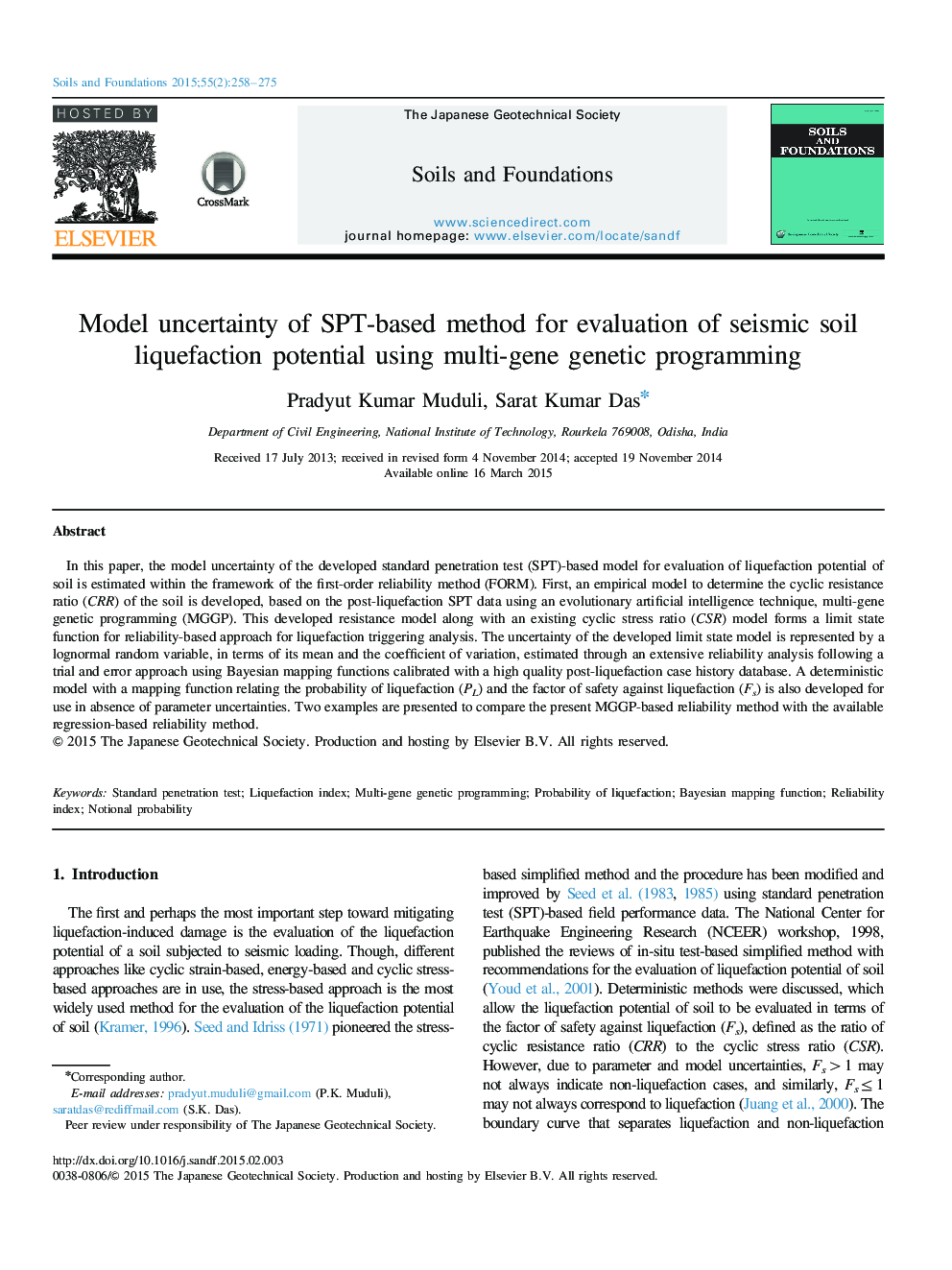| Article ID | Journal | Published Year | Pages | File Type |
|---|---|---|---|---|
| 307006 | Soils and Foundations | 2015 | 18 Pages |
In this paper, the model uncertainty of the developed standard penetration test (SPT)-based model for evaluation of liquefaction potential of soil is estimated within the framework of the first-order reliability method (FORM). First, an empirical model to determine the cyclic resistance ratio (CRR) of the soil is developed, based on the post-liquefaction SPT data using an evolutionary artificial intelligence technique, multi-gene genetic programming (MGGP). This developed resistance model along with an existing cyclic stress ratio (CSR) model forms a limit state function for reliability-based approach for liquefaction triggering analysis. The uncertainty of the developed limit state model is represented by a lognormal random variable, in terms of its mean and the coefficient of variation, estimated through an extensive reliability analysis following a trial and error approach using Bayesian mapping functions calibrated with a high quality post-liquefaction case history database. A deterministic model with a mapping function relating the probability of liquefaction (PL) and the factor of safety against liquefaction (Fs) is also developed for use in absence of parameter uncertainties. Two examples are presented to compare the present MGGP-based reliability method with the available regression-based reliability method.
